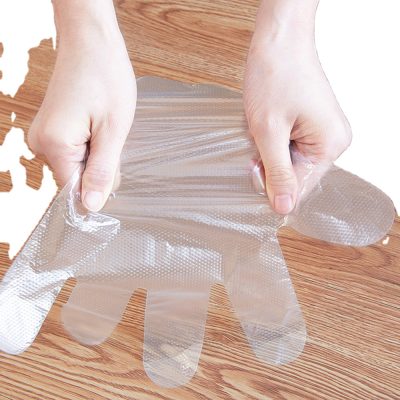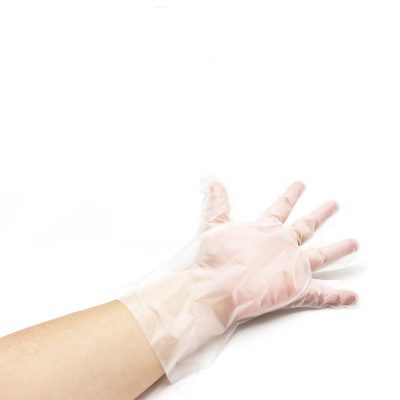Disposable gloves are incredibly versatile and find applications in a wide range of industries and settings due to their convenience, hygiene, and protective properties. Here are some of the key areas where disposable gloves are widely used:
- Medical and Healthcare: Disposable gloves, often made of latex, nitrile, or vinyl, are a fundamental component of infection control in healthcare settings. Healthcare professionals use gloves to protect themselves and patients from the spread of infections, ensuring aseptic conditions during surgeries, examinations, and patient care.
- Food Service and Handling: In restaurants, food processing facilities, and kitchens, disposable gloves are essential for food safety and hygiene. Food handlers wear gloves to prevent cross-contamination, maintain cleanliness, and adhere to food safety regulations.
- Pharmaceutical and Laboratory: Laboratories and pharmaceutical companies use disposable gloves to maintain sterile environments and handle chemicals safely. They protect lab personnel from hazardous substances and maintain the integrity of experiments and research.
- Cleaning and Janitorial Services: Janitors and cleaning professionals wear disposable gloves to protect their hands from cleaning chemicals, germs, and contaminants. Gloves make it easier to handle cleaning agents and maintain hygiene standards in public spaces.
- Automotive and Mechanics: Mechanics and automotive technicians use disposable gloves when working with greasy or oily parts, chemicals, and automotive fluids. These gloves protect their hands from potential skin irritation and exposure to harmful substances.
- Hair and Beauty Industry: Hairdressers, barbers, and beauticians wear disposable gloves when performing hair coloring, chemical treatments, and waxing. Gloves protect both the service provider and the client from contact with chemicals and hair dyes.
- Tattoo and Body Art: Tattoo artists and body piercers use disposable gloves to maintain a sterile environment and prevent the transmission of bloodborne pathogens between themselves and clients.
- Childcare and Diaper Changing: Disposable gloves are used by childcare providers and parents when changing diapers to maintain hygiene and reduce the risk of contamination.
- Home Cleaning and DIY Projects: Disposable gloves are handy for home cleaning tasks and do-it-yourself projects. They protect hands from exposure to cleaning agents, paint, solvents, and other potentially irritating or harmful substances.
- Gardening and Landscaping: Gardeners and landscapers wear disposable gloves to protect their hands while handling soil, plants, pesticides, and fertilizers. Gloves help prevent soil-borne infections and minimize contact with chemicals.
- Pet Care: Pet owners and veterinarians use disposable gloves when grooming, cleaning up after pets, administering medications, and handling animals to reduce the risk of zoonotic diseases (diseases that can be transmitted between animals and humans).
- First Aid and Emergency Response: Disposable gloves are included in first aid kits and are essential for providing immediate care in emergency situations. They protect caregivers from bodily fluids and contaminants.
- Manufacturing and Industrial Settings: Disposable gloves are used in various manufacturing and industrial processes where hand protection is required, such as handling chemicals, electronics, and sensitive components.
The versatility of disposable gloves lies in their ability to provide a barrier between the skin and potentially harmful substances, making them indispensable in maintaining safety, hygiene, and cleanliness across a wide range of professions and activities. The choice of glove material (e.g., latex, nitrile, vinyl) depends on the specific needs of the application, including considerations for allergies, sensitivity, and chemical resistance.




















